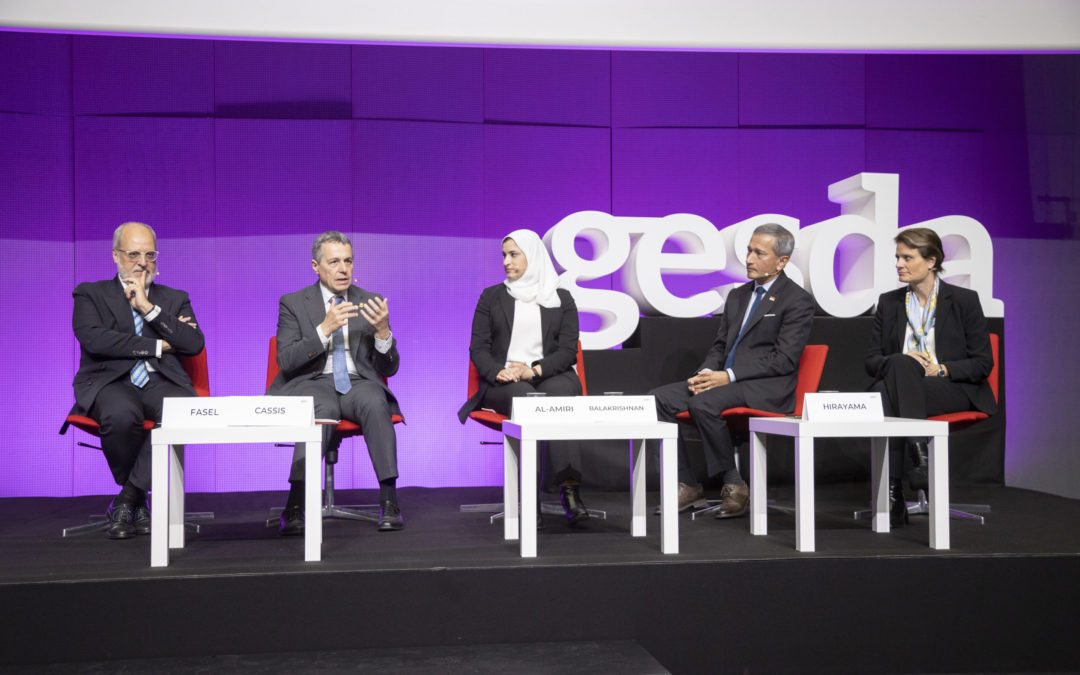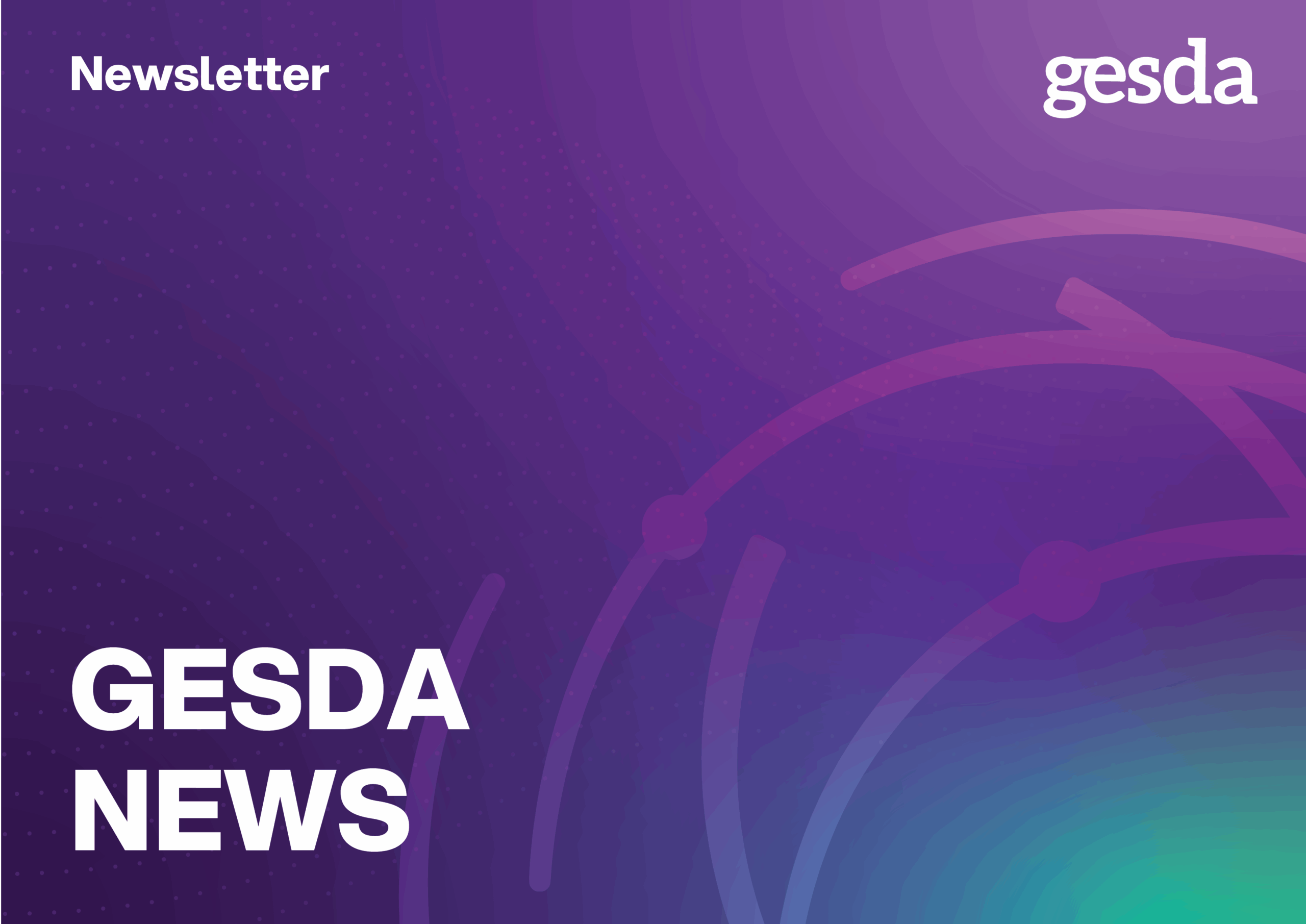Swiss President of the Swiss Confederation Ignazio Cassis and Peter Brabeck-Letmathe, Chair of the Board of the Geneva Science and Diplomacy Anticipator Foundation, closed the second edition of the GESDA Summit on Friday. The highlight of the last day was a roundtable discussion with Swiss Ambassador Alexandre Fasel, President Cassis, Ministers Sarah Bint Yousif Al-Amiri (United Arab Emirates), Dr Vivian Balakrishnan (Singapore), Urmas Reinsalu (Estonia), as well as the Swiss State Secretary for Education, Research and Innovation Martina Hirayama. Foreign Minister Nasser Bourita (Morocco) and Undersecretary for Multilateral Affairs and Human Rights Martha Delgado Peralta (Mexico) also spoke and read a statement.
The GESDA chairman and Swiss president offered complementary perspectives: Brabeck-Letmathe said GESDA was not intended to replace the political process, while President Cassis explained that the Swiss foundation’s promotion of anticipatory science diplomacy is, in effect, “a tool available to the political world that is meant to reinvigorate multilateralism.”
All the speakers emphasized history’s rapid acceleration, with former ICRC President Peter Maurer, who had given a keynote address several minutes earlier, summing up the situation with his observation that “what was science fiction two years ago has become reality.” All the invited ministers welcomed GESDA’s presence. Some, such as Nasser Bourita, explicitly supported creating an Open Quantum Institute (OQI) whose feasibility study is being conducted by GESDA with the support of 10 universities, 8 private companies, three civil society actors and the informal advice of 12 permanent representatives to the United Nations.
Two concrete actions to put scientific anticipation at the service of multilateralism
Science and technology as well as the OQI proposal, which is envisioned to launch in Geneva within five years, and a plan to create a global curriculum on science diplomacy, were at the center of a bilateral meeting held a day earlier between President Cassis and Singapore’s Foreign Minister Dr Vivian Balakrishnan. These policy segments were part of GESDA’s drive to bring together the communities of scientists, policymakers and diplomats. “Science needs politics to develop,” Brabeck-Letmathe recalled at the opening of the Summit.
The two leading GESDA proposals for action were well received during panel sessions and other talks held at the Summit. The next step is to concretely implement the projects. The OQI has already picked up a lot of support. Twelve academic institutions in Switzerland and around the world and eight businesses that are active in quantum technology have assured GESDA of their support. The permanent representatives of twelve missions to the United Nations and other international organizations in Geneva also have actively participated in the project’s conception.
Dialogue among generations
The last morning was also dedicated to youth. Eleven young people from different backgrounds selected by Cape Town university, the Villars Institute, Swissnex Network and the Young Academy were invited to tell their stories and share their thoughts on the theme of science and diplomacy.
Third edition of the summit from 11 to 13 October 2023
The second GESDA Summit, held from October 12 to 14, drew more than 1,000 participants, half of them remotely. Twenty one sessions were held to discuss the most promising highlights of this year’s GESDA Science Breakthrough Radar. The Summit included 150 moderators and speakers, up from 108 in 2021. Among those, the speakers and moderators came from 46 countries, up from 33 in 2021. More than a third of the speakers/moderators (37%) were academics, while more than a quarter (27%) were diplomats. Almost a quarter (23%) were citizens, including youth, and 13% came from the private sector.
The next GESDA Summit is scheduled for October 11-13, 2023.









